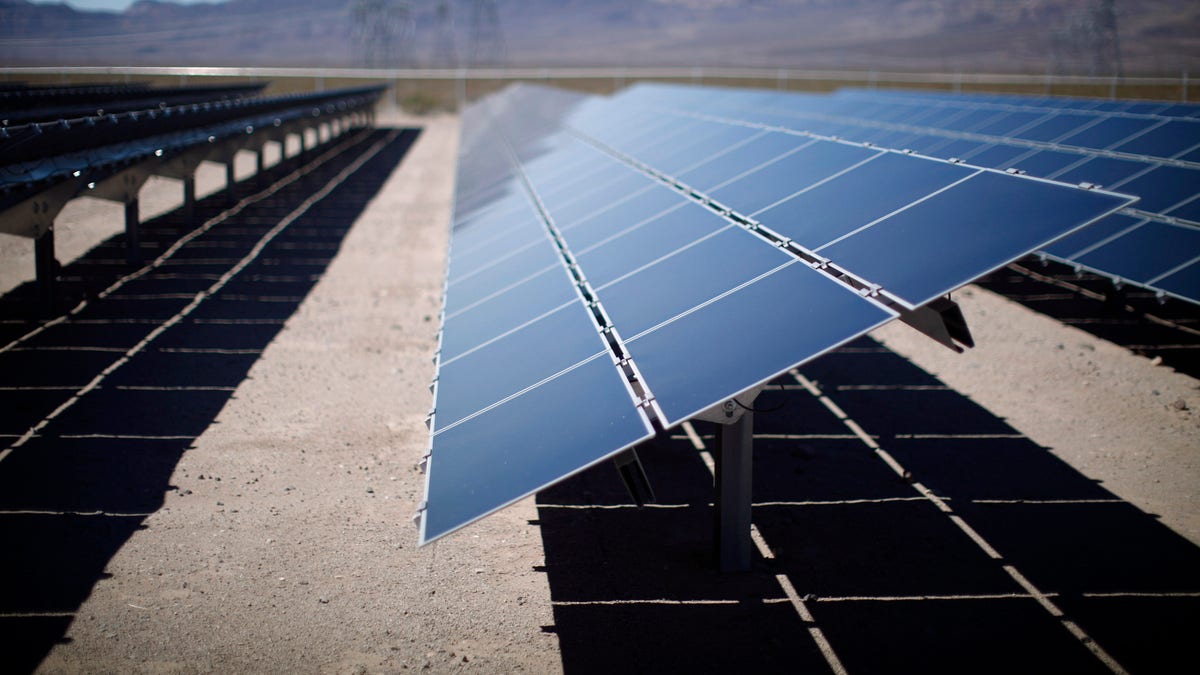
March 21, 2012: Solar panels are pictured in the Nevada Desert at the Copper Mountain Solar Project in Boulder City, Nevada. (Reuters)
Plans to create two solar energy plants on public lands in California and Nevada are pitting renewable energy advocates against environmentalists who fear the facilities will endanger federally threatened desert tortoises in the area.
Federal officials on Wednesday announced the approval of two plants expected to supply 550 megawatts of renewable energy, enough to power about 170,000 homes. Secretary of Interior Secretary Sally Jewell said more than 700 jobs will be created through construction and operations.
The Stateline Solar Farm Project is slated for a site in the Mojave Desert in San Bernardino County, Calif., near the Nevada line.
Across the border, the Silver State South Solar Project will be located near Primm, Nev. It will be adjacent to the smaller Silver State North facility, which is already providing power.
Both new public lands projects were proposed by the company First Solar and have commitments from Southern California Edison to purchase the plants’ output for 20 years, the secretary said.
Throughout the review process, environmentalists voiced concerns that construction will negatively impact populations of desert tortoises in the Ivanpah Valley.
The plants would effectively isolate the tortoises’ habitats, eventually shrinking the gene pool, said Dr. Michael J. Connor, California Director of the Western Watersheds Project. The desert tortoise was listed as threatened in 1994.
“Once you have populations that are isolated they are more prone to chance events like disease die-offs and the like,” he said.
In November the group Defenders of Wildlife filed a notice of intent to sue the government under the Endangered Species Act to block the projects, California Program Director Kim Delfino said.
“We strongly support renewable energy projects and have supported solar plants,” she said, pointing out the organization backed the Silver State North project. “These two we do not support.”
David Lamfrom, California desert program manager for the National Parks Conservation Association, told The San Bernardino Sun that environmental groups have partnered with the Department of the Interior to create "solar zones" where large plants could be installed with minimal disruption of natural habitant.
Still, Lamfrom said Wednesday's approval "is a bitter pill to swallow.”
“When a project starts in the wrong place, making it better only makes it cause less damage,” Lamfrom told the newspaper.
The government said Wednesday it would work to protect the tortoises by expanding the Ivanpah Desert Wildlife Management Area by more than 20,000 acres.
For the Silver State South project, the developer is required to fund over $3.6 million for desert tortoise mitigation projects and $3.5 million for studies intended to guide future efforts to protect the desert tortoise in the project area, according to a news release.
The Associated Press contributed to this report.

